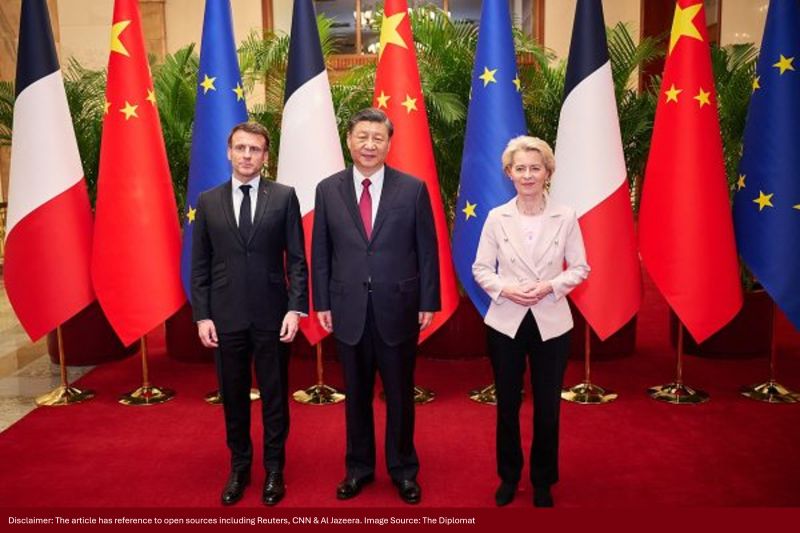Last week Xi Jinping travelled to Europe after a long period during which many in Europe have been very critical of China’s position on Russia’s invasion of Ukraine, trade and human rights. China has steadily lost ground in Central & Eastern Europe with China’s perceived support for Russia souring relationships in a region with history of Soviet domination. Italy has walked out of BRI. Analysts call China-Europe relationship as “rival-power-competitor.”
China is looking to win lost ground in Europe, its largest trading partner – a continent where the US enjoys much leverage. Xi is looking to deepen trade & investment. Three countries had been carefully chosen. France is a heavyweight in Europe. Under Merkel, Germany was the preferred partner, now France under Macron seems to be most receptive of China’s needs. France is seen by Beijing as creating a potential for a diplomatic opening given Macron’s advocacy for Europe’s strategic autonomy.
Hungary is an EU & NATO member having good relations with Russia & China. He announced major investments in Hungary. EU requires just one member to block any deal. Hungary could be an important ally in the EU.
Serbia, an EU aspirant, iterated iron-clad partnership with China and announced an FTA. Xi announced a $2.1 billion investment to connect the capitals – Budapest to Belgrade, as part of BRI. The images of Xi Jinping being received warmly Hungary and Serbia were relayed back by Chinese media.
Hungary & Serbia need investments; China needs friends in Europe. EU-member Hungary would be valuable to Beijing as tensions with the EU continue and talks of trade war intensify. Hungary’s Orban and Serbia’s Vucic are positioning themselves between the
rival geo-political blocs, pragmatically placing economic interests over democracy or human rights.
Xi is trying to show that despite poor relations with the US, Europeans are good friends of China. He hinted countries in Europe who understand China would benefit from deepening relationship with it. “Hungary and Serbia are strategic gateways for Beijing towards Europe… the value of the two countries as gateways to Europe will increase as the trade war escalates,” said a former Hungarian MP.
Tangible results of Xi’s visit to France look invisible. There were few tangible signs that friction with Western Europe would reduce despite Macron and Ursula Von de Leyen stressing the importance of dialogue and Xi signing 18 cooperation deals during his two day visit to France.
Xi Jinping’s foreign policy has been a break with the policies of his predecessors. His support of Putin and Russia’s military-industrial complex is viewed unfavourably in the West. Xi has been preoccupied with problems at home, particularly a slowing economy and rising unemployment. Some elites at home are critical of Xi’s policies, particularly his overreach to Russia.


